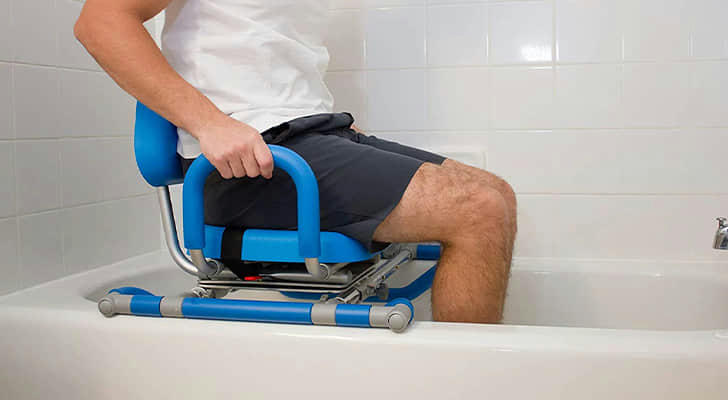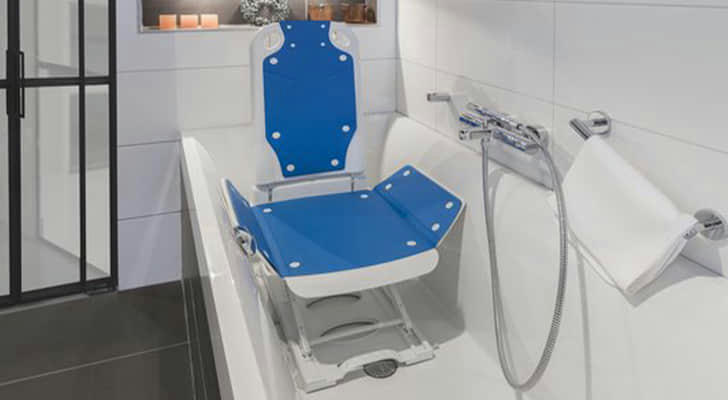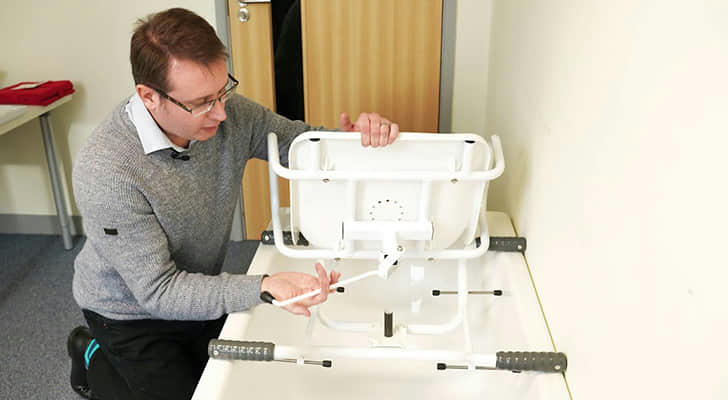Expert Tips for Selecting the Ideal Bath Chair
If you or someone you know has mobility, strength, or balance issues, using a shower bath chair can make a big difference in preventing falls.The bathroom can be a slippery and risky place, so having a stable seat can help people bathe safely and comfortably, without the fear of falling.

What's a Shower Chair?
A shower chair, sometimes called a tub chair, shower seat, or shower stool, is a waterproof seat designed for use in the shower or bathtub. It helps those who have trouble standing by providing a safe place to sit while they bathe.
Who Needs a Shower Chair?
Shower chairs are especially helpful for individuals with poor balance, those who get tired easily, people with weak legs, or anyone at a high risk of slipping. If standing in the shower is challenging, a shower chair can offer the needed support and stability.
Will Medicare Cover a Shower Chair?
Medicare Part B typically doesn't cover shower chairs for home use. However, some Medicare Advantage plans might include allowances for such items. It's a good idea to check with your plan to see if they offer coverage for shower chairs.
What to Look for in a Shower Chair?
When choosing a shower chair, consider these key factors:
1. Adjustability and Fit:
Look for chairs with adjustable legs and backrests for a better fit. Features like rubber feet or non-slip pads help prevent slipping on wet surfaces. Many chairs also have drainage holes to avoid standing water.
2. Design:
Some chairs have a commode function, meaning they can be used over the toilet as well. If extra support is needed, consider chairs with power lifts that assist in transitioning to and from the chair.
3. Material:
Ensure the chair is made from water-resistant, rust-proof materials. Common options are aluminum and plastic. Seats may be made of hard plastic, mesh, or antimicrobial materials.
4. Visibility and Color:
For those with low vision, brightly colored chairs can help make the seat more visible and reduce the risk of falls.

5. Weight Capacity:
Standard chairs usually support between 250 and 400 pounds. Bariatric models can handle up to 900 pounds, with many in the 500-600 pound range.
6. Size and Shape:
Make sure the chair fits your shower or bathtub. Measure your space carefully and choose a chair that suits both the user and the bathroom layout. Some chairs are designed specifically for walk-in showers or bathtubs.
7. Additional Features:
Features like padded seats for comfort, suction cups for stability, and adjustable heights for a customized fit can make a big difference. Some chairs even recline for those needing additional support.
8. Specialty Chairs:
For unique needs, there are chairs designed for post-surgery recovery, pediatric sizes, bariatric support, and more. Each type offers specific features to enhance comfort and safety.
Types of Shower Chairs
1. Shower-Commode Chair
A shower commode chair can be used in the shower or placed over the toilet, making it versatile for users who need support for both showering and toileting.
Pros:
Versatile for both showering and toileting
Reduces fall risk by providing support in multiple bathroom activities
Cons:
- Must be measured to fit properly
2. Shower Chair With Back
A chair with a back provides extra support and stability, preventing users from falling backward. It often comes with removable armrests and a grip handle.
Pros:
Extra stability and support
Adjustable for a custom fit
Cons:
- Can be heavier and more difficult to move
3. Shower Chair Without Back
A backless chair is simpler and less bulky, making it easier to position in the shower. It's a good choice for those who don't need extra back support.
Pros:
More affordable and less bulky
Open bathing environment
Cons:
- Lacks back support, which might be needed later
4. Shower Stool
Shower stools are compact and can be a good fit for smaller spaces. Some stools swivel, making it easier to get into position.
Pros:
Compact and easy to fit into small showers
Some models swivel for easier positioning
Cons:
- No backrest for additional support
5. Shower Bench
A shower bench, or transfer bench, extends across the bathtub, with part inside and part outside. It's ideal for those who need support getting in and out of the tub.
Pros:
Supports transfer in and out of the tub
Great for those needing extra assistance
Cons:
- Bulkier and often more expensive
6. Specialty Shower Chairs
Reclining Shower Chairs: These provide various reclining positions for comfort and support, especially useful for those with weaker legs or upper body strength.
Swivel Seat Shower Chairs: These chairs make transfers easier by allowing users to swivel rather than move or twist.
Shower Wheelchairs: Useful for those who can't walk, these have an opening for toileting and can be used with caregiver assistance for showering.
7. Wall-Mounted and Folding Chairs
Wall-mounted and folding chairs offer flexibility and convenience, especially if space is shared or the chair needs to be moved frequently.

Conclusion
By carefully selecting a shower chair that aligns with these considerations, you can significantly improve safety, comfort, and independence during bath time. A well-chosen shower chair not only makes bathing a more secure and pleasant experience but also supports overall well-being by allowing users to maintain a higher level of autonomy and comfort.
